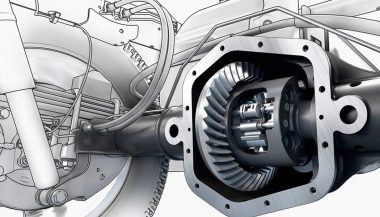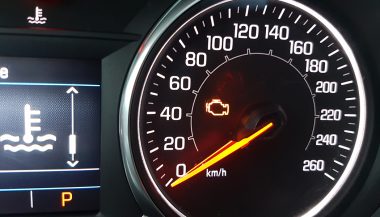We Show You How to Disinfect Your Car
These days it seems like everyone wants to make sure what they touch is as clean as possible, including all the surfaces in their car. You probably already realize that disinfecting your car’s interior is different than cleaning your kitchen or bathroom, but knowing that doesn’t tell you what to do about it, so we’re here to tell you how to disinfect your car.
Thankfully, we have an easy-to-understand guide to walk you through disinfecting the different surfaces in your car. As you do this regularly you’ll be exposing yourself and your family to fewer germs. Plus, as they say, practice makes perfect. The first time you really disinfect your car it’s going to be more difficult, but after that, it will just become part of your routine.
If you’re a taxi or ride-hailing service driver, the following information could help your passengers stay safe, plus it’s something good to advertise so people will be more willing to ride in your vehicle.
Isopropyl Alcohol
Thanks to the CDC, we know cleaners which contain at least 70 percent alcohol are effective for disinfecting surfaces sufficiently. That includes how to disinfect your car. You can check the labels on the cleaners you already have in your house to see which adhere to this guideline.
Alternatively, you can apply isopropyl alcohol to high-touch surfaces in your car using a soft, microfiber cloth. Despite what most people might think off the bat, most of the materials used in your car’s interior can handle being cleaned with straight-up alcohol. It makes figuring out what to use for cleaning far easier, but there are some caveats you should be aware of when it comes to how to disinfect your car with alcohol.
Certain surfaces don’t mix with isopropyl alcohol or other cleaners which can dry them out. This might include leather and real wood trim. With those two materials you might be able to clean them with alcohol, but you’ll need to apply a conditioner afterward to prevent drying and cracking, or else damage will ensue.
With those big touchscreens, which you put your dirty hands all over constantly, you might want to skip the isopropyl alcohol. Instead, consider using something like Lysol or Clorox diluted, which you can also use on your smartphone and even your computer screen. It will still disinfect the surface but won’t damage the screen so you can see clearly and your touch inputs will be accurate.
Soap and Water
If you don’t have isopropyl alcohol on hand or cleaners with at least 70 percent alcohol, you can always turn to soap and water. Obviously, water can be a problem where electrical switches and touchscreens are concerned, so proceed with caution.
However, soap and water absolutely will kill harmful germs, which is exactly why you use it on your hands. Better yet, you probably have a pretty good supply of the stuff. Just remember to apply it using a microfiber cloth to prevent scratching and dry the surfaces fully so you don’t have any soap residue leftover.
Soap and water work especially well for cleaning seats, including both cloth and leather upholstery. If the material isn’t cracking or fraying, just remember to not scrub hard but instead to treat it gently. In fact, that works for any surface in your car.
A note on cloth upholstery: use both soap and water sparingly when cleaning it. Too much of either will allow the liquid to get absorbed through the cloth and into the seat cushions. That can trigger an even bigger problem by triggering a musty smell or even promoting mold growth in the seats. In other words, a little bit of soap and a little bit of water goes a long way when cleaning your cloth upholstery.
Bleach
Absolutely use bleach to clean your kitchen and bathroom, but under no circumstances should you use it to clean the interior of your car. Bleach is far too harsh and it will discolor the different surfaces in your vehicle. It could also cause the different plastics and other materials to crack and come apart, absolutely destroying features and ruining the resale value.
The same thing goes for hydrogen peroxide. It’s great for cleaning wounds and even cleaning in your house, but skip it when it comes to how to disinfect your car.
Make Sure You Get Everything
Your car interior is absolutely full of high-touch surfaces. In fact, there are so many you probably won’t even think of them all immediately. If you miss one area where people touch often, your cleaning efforts could all be for nothing.
First off, remember the common areas like the door handles, armrests, center console, and the steering wheel. The same thing goes for all the window and door lock controls. The various buttons, dials, and switches on the dash also need to be cleaned. All touchscreens, including your infotainment center and (if you have one) the digital gauge cluster.
There are some less-obvious high-touch areas in your car you need to not skip. The seat controls, whether electric or analog are one commonly-skipped surface. The trip odometer switch, which in older cars is a small black post is another one. You might forget they’re even in your car, but the various grab handles on the headliner and on the seatbacks are another thing to not miss.
Other areas you need to remember include the glovebox release and actually the whole front of the glovebox, the dome lights and switches, sunroof switches, turn signal and other stalks on the steering column, hood release latch, trunk release, gas door release, and go for the gas cap while you’re at it. Don’t forget all the cupholders, including the bottle holders in the doors. If you have small children, the interior glass gets touched far too much.
After Cleaning
Double-check you’ve cleaned all the high-touch surfaces in your car. The first time you do this it will seem tedious, so it’s easy to skip over something accidentally. After a while, this cleaning routine will be second nature.
Once you’ve put away all your cleaning supplies you need to do one last, very important thing: wash your hands thoroughly. Remember, you should scrub vigorously, including the backs of your hands, between your fingers, and underneath the nails for at least 20 seconds. This is especially important since while working on how to disinfect your car, you could’ve picked up all kinds of potential contagions.






